5 Studies on the Benefits of the Purpose-Driven Workplace
“A good organizational purpose calls for the pursuit of greatness in service of others.”
—Bryan Walker, IDEO Design Director
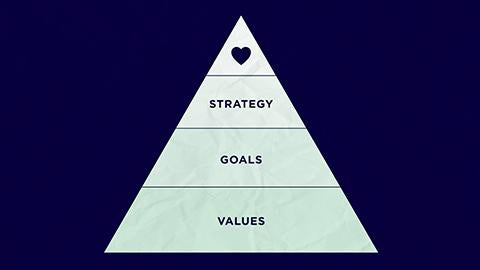
The average person works 1,842 hours a year. That adds up to 92,100 hours over a 50-year career. And during those hours, sometimes it’s easy to forget why we do what we do.
But the research is clear, individuals are more fulfilled and organizations perform better when they’re rooted in an authentic purpose. Below are five studies that show why purpose matters.
What the Data Tells Us About Purpose
1. Lower Risk of Death
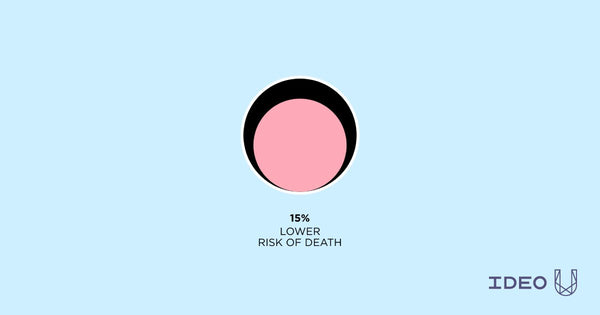
Having a sense of purpose in our life is critical to well-being. In fact, in a longitudinal study, researchers found that people who demonstrate a sense of purpose in their lives have a 15% lower risk of death compared with those who said they were more or less aimless. And it didn't seem to matter when people found their direction. It could be in their 20s, 50s, 70s.
2. More Fulfilled at Work
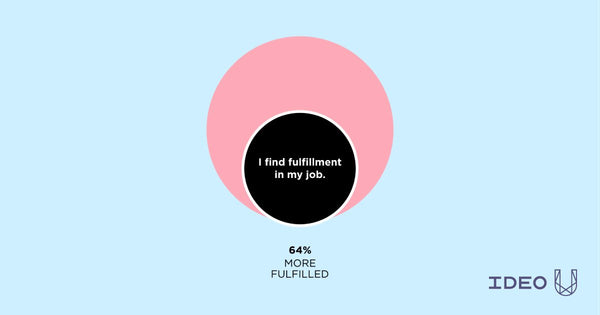
The 2015 U.S. Purpose Index study found that purpose-oriented employees have 64% higher levels of fulfillment in their work.
3. Higher Employee Retention
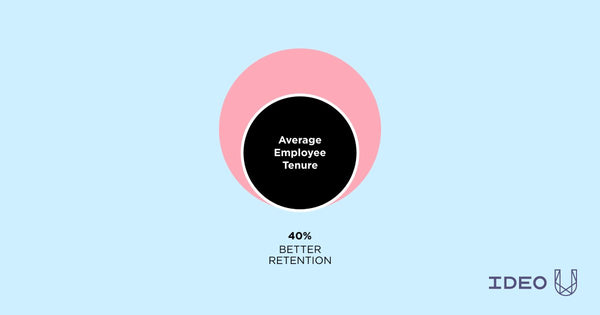
Research from Deloitte shows that “mission-driven” companies have 30 percent higher levels of innovation and 40 percent higher levels of retention.
4. Meaning Over Recognition
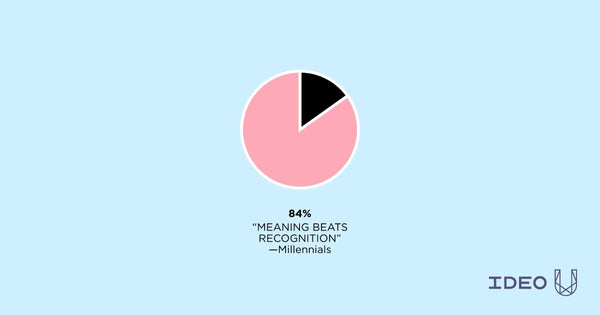
84 percent of millennials say that making a difference is more important than professional recognition.
5. Higher Returns for Purpose-Driven Companies
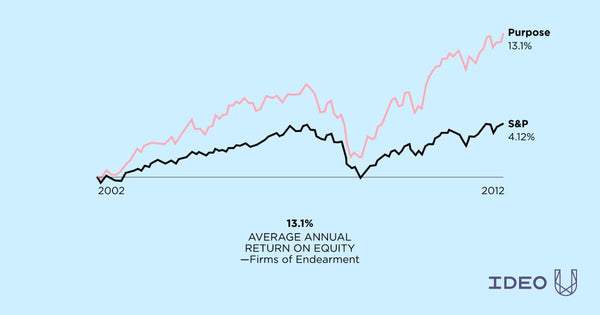
In the book, Firms of Endearment, the authors built a 18-firm index of purpose-driven companies and tracked their financial performance over 10 years. They found that the 18 FoE companies showed an average annual return on equity of 13.1%—that's 9% higher than the S&P.
The Invisible Hand: Companies & Purpose
Companies like Starbucks and CVS recognize that it’s in their best interest to focus on a higher purpose. And BlackRock Financial, the second largest investment firm in the US, is actively encouraging companies in the private sector (in which it’s a significant shareholder) to find a purpose that meets people’s unmet needs. What Larry Fink, chairman and chief executive officer of BlackRock, and others argue is that there’s currently an imbalance that exists between what the market is providing and the needs of society.
“How selfish soever man may be supposed, there are evidently some principles in his nature, which interest him in the fortune of others, and render their happiness necessary to him.”
In The Wealth of Nations and The Theory of Moral Sentiments, Adam Smith introduced the idea of “the invisible hand,” how markets and their self-interests can benefit society. Whether companies and markets can deliver on the needs of people will be put to the test in the coming years with the acceleration of technology, automation, and complex issues like climate change. The Circular Economy is one example of how purpose-driven companies can lead the charge towards more sustainable systems and solutions. Will your company and others deliver on meeting the needs of people?
Finding a purpose that can be a rallying cry for your team is one of the first steps in how to create transformational change in your organization. Why does your company exist beyond making money? And who are you trying to serve? As you explore the answers to these questions, remember that people on your team and company are more likely to own your purpose if they have a part in creating it.
Join our Power of Purpose class and work alongside your team to define and articulate a meaningful purpose and bring it to life beyond slogans and posters.
- choosing a selection results in a full page refresh
- press the space key then arrow keys to make a selection



